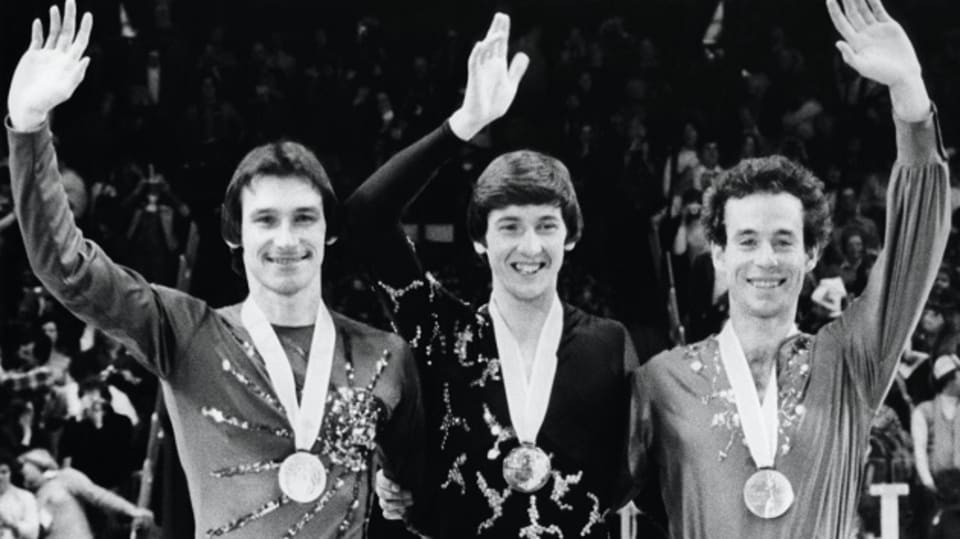
Cousins was the product of a sporting family – his footballer father played in goal for London team Millwall FC – and he took up figure skating as a child, going on to take his first national title in 1969 at the age of 12. He was crowned British champion at 14 and made his international debut that year.
After finishing 10th at the 1976 Innsbruck Games, he won a bronze medal at the 1978 World Championships, and silver the following year. Lake Placid beckoned.
Cousins, by now a student, and trained by Curry’s famous coach Carlo Fassi, was one of four favourites to win gold in the men’s singles competition at the 1980 Olympic Winter Games – his main challengers being the American Charles Tickner, world champion Vladimir Kovalev of the USSR, and East Germany’s Jan Hoffmann.
Kovalev dropped out after placing fifth in the compulsory figures, just one place behind Cousins. However British hopes of a gold were reignited the next day in the short programme – a routine that in 1980 had to include eight different elements, including axels, spins, triples and jumps.
Hoffman gave a technically sound but rather wooden performance, while his British rival’s artistic brilliance – partly a result of his parallel career as an ice dancer – won him the highest marks of the day, including a perfect 6.0 from the Canadian judge.
Cousins lay in second place as the free skating round began the next day, still behind Hoffmann but one place ahead of Tickner. It was all to play for.
“Robin must skate well and make no mistakes,” said his Fassi – who weeks previously had, somewhat remarkably, called his pupil a “chicken” for leaving a triple jump out of a routine.
Millions of figure skating fans in Britain stayed up into the night watching TV to see if the 22-year-old from Bristol could emulate Curry’s spectacular success at Innsbruck four years earlier. Those viewers and spectators cheering Cousins on in the Olympic Fieldhouse in Lake Placid got an early fright when he began his long programme with a slight slip.
But he quickly corrected himself and went on to pull out a near-flawless performance. His artistry was to prove crucial in securing gold as it made him the spectators’ favourite non-American competitor, and they stomped their feet and cheered him, tipping the opinion of swithering judges in his favour.
Hoffmann again turned in a technically superior performance and won more points than Cousins, but the latter was named overall winner on six of the nine judges’ ballots. The gold was his. A second slip famously came as the jubilant, overwhelmed British hero climbed up to the winner’s podium – but by then it didn’t matter.
